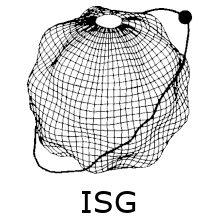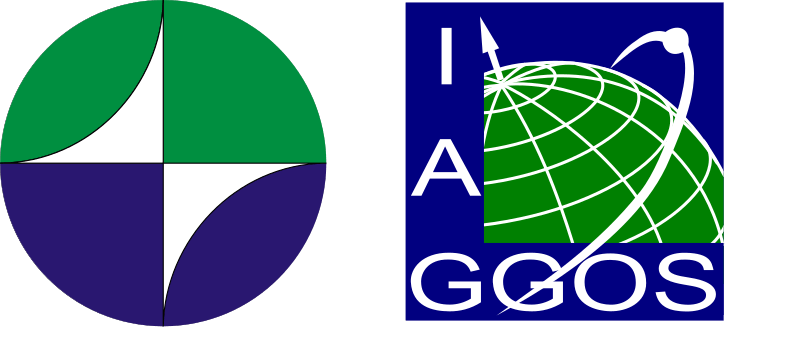ISG – International Service for the Geoid
President: Mirko Reguzzoni (Italy)
Director: Daniela Carrion (Italy)
Mission / Objectives
The main tasks of ISG are:
• to collect geoid estimates worldwide, when possible validate them, and disseminate them upon request among the scientific community. Other auxiliary data useful for the geoid determination may also be collected by ISG, without redistributing data that are already provided by other IAG services;
• to collect, test and when allowed distribute software for the geoid determination;
• to conduct researches on methods for the geoid determination, also defining optimal procedures for merging all available data and models;
• to organize international schools on geoid determination addressing both theoretical and practical topics, possibly every two years. During the schools, students are trained in the use of the relevant software for geoid computation;
• to support agencies or scientists in computing local and regional geoid models, especially in developing countries, also organizing special training courses;
• to disseminate training material and software on geoid computation, e.g. lecture notes of the schools;
• to issue the Newton’s Bulletin, which has a technical and applied nature, collecting papers and reports on gravity and geoid;
• to establish and update a website to present the service activities, show and distribute the geoid models, software and publications, announce news and the organization of international schools on geoid determination.
Data and software given to ISG remain property of the authors, who decide upon the conditions of use and can allow, restrict or deny their distribution. ISG itself can indeed perform geoid computations within different projects, while remaining a non-profit institution.
Products
• Database of local and regional geoid models, in the form of grids or sparse points, stored and distributed in a homogeneous file format;
• Software archive for local geoid estimation, for terrain gravity effect calculation and for handling global models;
• Documentation on data and software;
• International schools and on request training courses on geoid computation;
• Lecture notes and other geoid related publications;
• Newton’s Bulletin and the former IGeS Bulletin;
• Research results on gravity and geoid matters.
Future Programs/Development
Beyond institutional activities, the following research topics are worth of specific mention:
• computation of improved geoids for Italy and the Mediterranean area;
• integration of ground, air-borne, ship-borne and satellite gravity data for geoid modelling;
• integration of local, regional, continental and global geoid models;
• participation within GGOS to the study of the height datum unification problem;
• participation within IGFS to the validation of new global gravity models;
• study of improved methodologies for the determination of the geoid at local and global level.
Structure
ISG is an official IAG service that is coordinated by IGFS and is also related to the activities of the IAG Commission 2 on Gravity Field. Its structure, tools and activities are illustrated in the ISG reports to the Advisory Board of IGFS.
The Service is hosted by the Department of Civil and Environmental Engineering at Politecnico di Milano. ISG staff is currently composed by researchers and a secretary from Politecnico di Milano. They nominate, upon recommendation of IGFS, a President for its international representation and a Director for the operative management. In addition, the ISG advisors are scientists who have or have had an outstanding activity in the field of geoid determination and can also represent ISG in both research and teaching activities.
At present, the following distinguished scientists are ISG advisors:
• N. Pavlis (USA)
• M. Sideris (Canada)
• J. Huang (Canada)
• R. Forsberg (Denmark)
• J. Ågren (Sweden)
• U. Marti (Switzerland)
• H. Denker (Germany)
• L. Sánchez (Germany)
• I. Tziavos (Greece)
• D. Blitzkow (Brazil)
• W. Featherstone (Australia)
• H. Abd-Elmotaal (Egypt)
• C. Hwang (Chinese Taipei)
Finally, within the structure of ISG, Working Groups can be established for specific purposes, limited in time.
(last update 09.2020)



